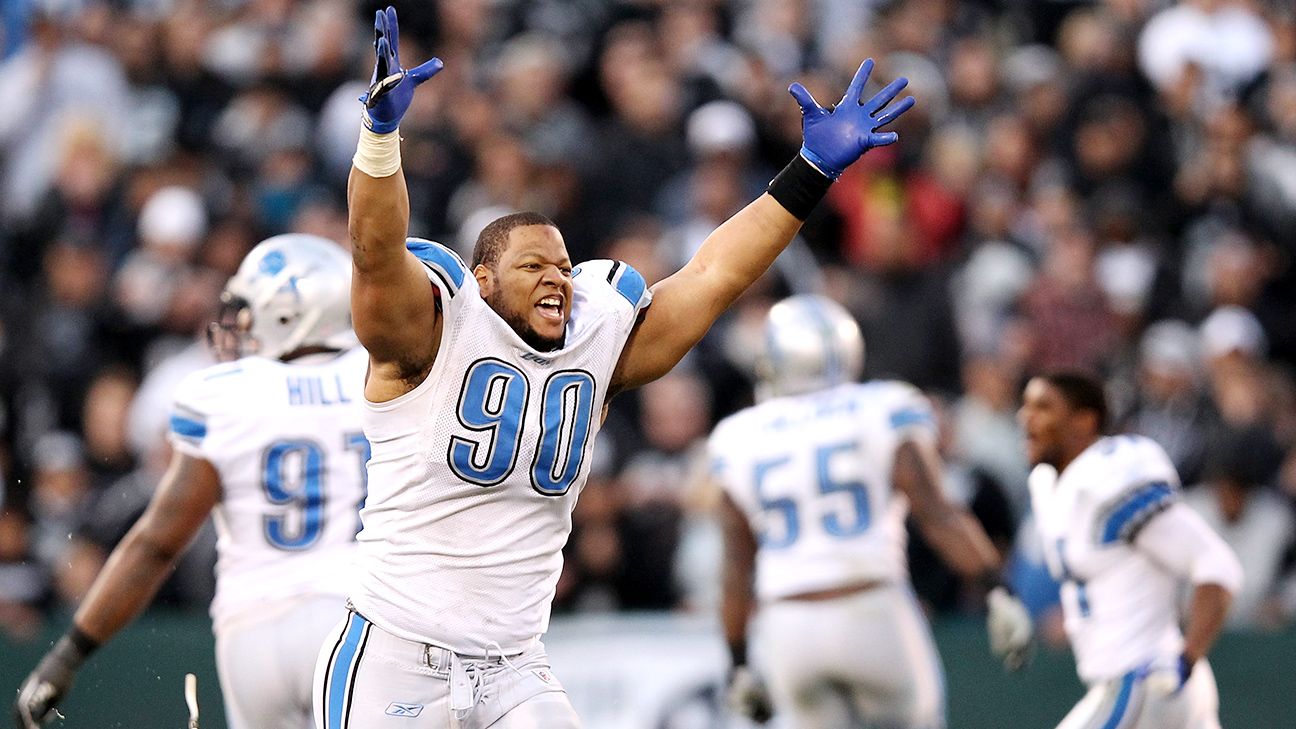DETROIT — The No. 8 p.m. ET — The No. ET, ESPN. ABC. ESPN app). Detroit LionsHave a chance to make another step towards turning the franchise around…or maybe not.
The Lions have drafted No. 2 five times — with the most recent being in 2010 — and have had mixed success.
Overall, No. Over the past 12 years, 2 picks were either hit or miss. Ten of the 10 past No. Two picks in the past 10 No. Carson Wentz(second team in 2017).
• Follow live » | What to know »
• Ranks: Scouts Inc. | Positions
• Mocks: Kiper | McShay | Reid | Miller
• QB reports » | Superlatives » | Comps »
• Top 10 buzz » | Last-minute nuggets »
• More coverage » | Full draft order »
However, there have been many great successes.
No. The No. Buffalo Bills outside linebacker Von Miller. Over his career with The Denver Broncos Los Angeles RamsMiller has been a Pro Bowler eight times, one more than the 10 previous No. Miller was selected in 2 of the top picks. He was also named to the first-team All Pro team three times and second-team All Pro team four times.
The Lions adopted defensive tackle in 2010. Ndamukong SuhAt No. 2. He was part of five Pro Bowls, and All-Pro Teams during his time in Detroit. Miami Dolphins.
Lions general manager Brad Holmes made it clear that he’s in search of a game-changer. Recent mock drafts saw the Lions take a variety of players, even defensive ends. Aidan Hutchinson, Travon Walker Kayvon ThibodeauxAs well as defensive backs Kyle Hamilton Ahmad “Sauce” Gardner. Matt Miller, an ESPN NFL draft analyst, has the Lions in his latest mock. selecting Hutchinson.
“Well, anything can happen at any day, I will say that,” Holmes said. “But it’s not just narrowing it down to your top two. You should have at least five top performers. You better have your top 10 in place, because you just don’t know what’s going to happen each day. We do have it narrowed down, and we feel confident where we’re at with how we have it pared down. We’ll just let the process unfold.”
Here’s a look at the Lions’ No. The Lions have had 2 draft picks over the years.
2010: Ndamukong Suh, DT, Nebraska
No. 90 was the one who brought Motown muscle. Suh was often criticized for his aggressive style, but you couldn’t deny his production as he was named Defensive Rookie of the Year in 2010. He was also a member of the All-Decade Team in 2010 and earned three All-Pro nominations. It wasn’t until he left Detroit that he would ultimately become a Super Bowl champion with the Tampa Bay Buccaneers.
2007: Calvin Johnson WR, Georgia Tech
The Lions certainly got it right with this pick as “Megatron” would become the greatest wide receiver in franchise history. His nine-year Detroit experience was extraordinary. He holds the franchise records of career receptions (731), receiving yards (11.6199) and receiving touchdowns (83). He joined Gale Sayers (35), and Jim Brown (35) to become the third player inducted into the Pro Football Hall of Fame.
2003: Charles Rogers (WR), Michigan State
The Saginaw, Michigan product enjoyed an outstanding career at Michigan State, but he couldn’t recreate that magic for the Lions. A season-ending injury to the clavicle of his left clavicle forced him to miss 15 games for three years. In 2005, he was suspended for substance abuse. He never again had the opportunity to play in the NFL. After being diagnosed with cancer, he passed away in 2019 at 38 years old.
1949: John Rauch, QB, Georgia
Rauch was drafted to the Lions but never saw professional action. He was traded to New York Bulldogs by Southern Methodist University running back Doak Walk, who would become one the most important franchise figures in history. Walker played a significant role in helping the Lions win two NFL Championships in 1952, 1953 and was selected to the All-Pro Team four times. In 1986, he was inducted into the Pro Football Hall of Fame.
1947: Glenn Davis, HB, Army
Davis’ professional football career lasted two seasons for the Lions and wasn’t memorable. He was a part of 12 games and caught 10 passes for 132 yard. However, Davis would leave his mark on track and field. He won three gold medals as an Olympic hurdler and sprinter in the 1956 Olympic Games. Davis is a member of The United States Olympics Hall of Fame. At 74, he died from pulmonary fibrosis.
